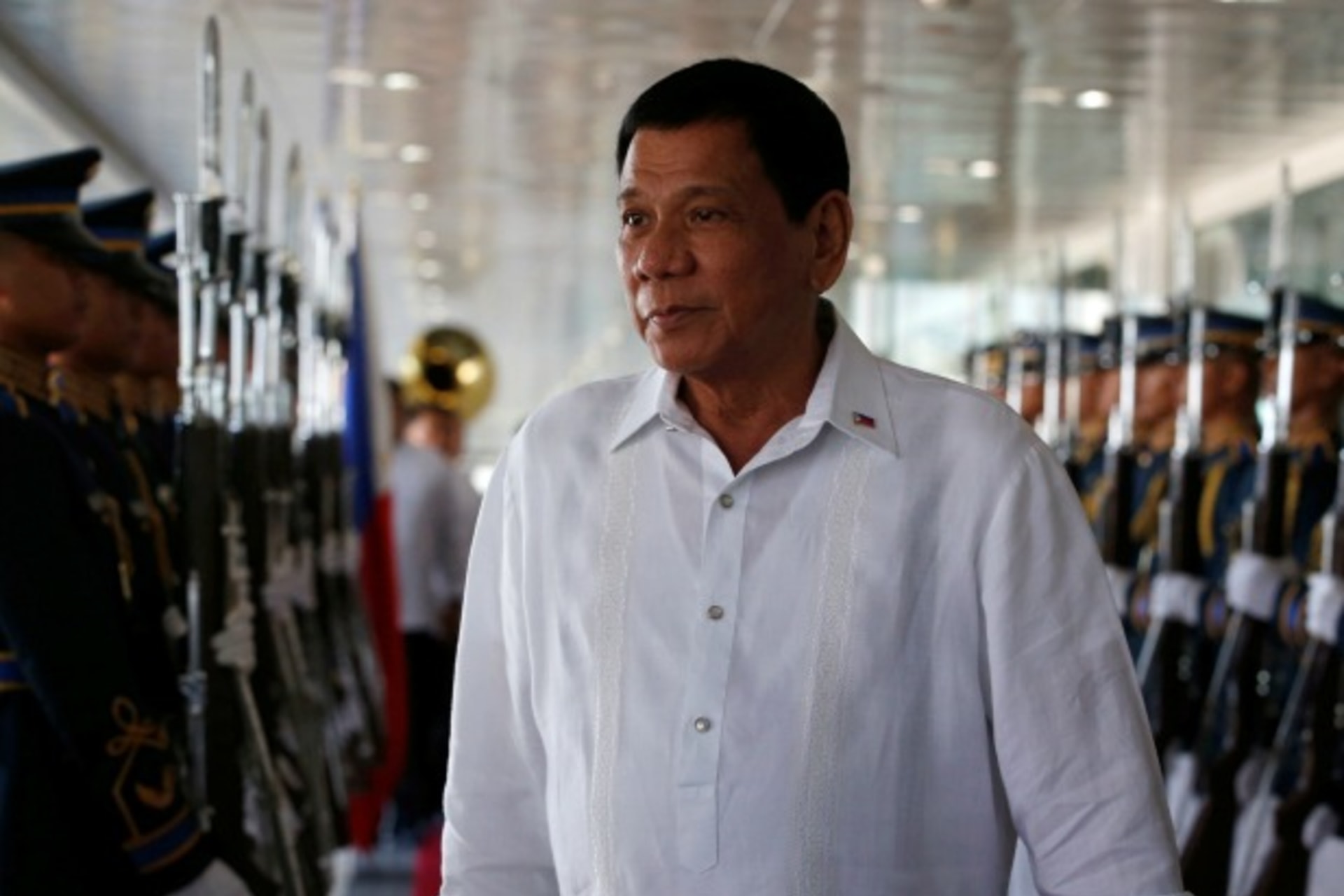Duterte and China

By experts and staff
- Published
By
- Guest Blogger for Asia Unbound
Richard Javad Heydarian is an assistant professor in political science at De La Salle University in Manila, and, most recently, the author of Asia’s New Battlefield: The U.S., China, and the Struggle for Western Pacific.
During his four-day visit to Beijing (October 18-21), the Philippines’ firebrand leader, Rodrigo Dutetre, once again grabbed global headlines by reportedly bidding goodbye to and “separation” from the United States. Instead, he spent his time in China declaring his realignment with China’s “ideological flow.” Not shy of melodramatics, he dropped another bombshell by declaring he thought it could now be Russia, China and the Philippines “against the world.”
The visit came amid festering diplomatic tensions between Washington and Manila over human rights concerns, particularly Duterte’s war on drugs. During his trip, Duterte sought to reopen communication channels with Beijing, break the ice in frosty bilateral relations, expand areas of economic cooperation, and explore bilateral discussions about resolving contested claims to areas of the South China Sea.
A cursory look, however, shows that commercial considerations dominated the agenda. A total of $24 billion in economic deals were put on the table, although it remains to be seen whether these deals will all actually come through. Many leading Philippine tycoons accompanied Duterte on his visit to China, where he was granted a formal state visit. Duterte managed to also secure a pledge from Beijing of $9 billion in soft loans and grants, with a particular focus on revamping the Philippines’ decrepit public infrastructure through big-ticket projects. China also lifted a travel advisory on Chinese tourists bound for the Philippines and relaxed restrictions on the Southeast Asian country’s banana exports.
Eager to woo the Philippine president, China also rhetorically backed Duterte’s campaign against drugs, and is currently negotiating a 25-year military deal with the Philippines. There were, however, little indications that any breakthrough in the disputed waters were achieved, whether it is a joint fisheries agreement in and around the Scarborough Shoal or proposed joint exploration deal in the energy-rich Reed Bank in the South China Sea.
Nonetheless, the two parties triumphantly declared their relationship as fully normalized, after years of tensions during the Aquino administration. In their joint statement, they agreed to “make concerted efforts to cement the traditional friendship of the two peoples.” But far from creating clarity in Philippine foreign policy direction, Duterte injected more confusion into the picture when he publicly backtracked from his most controversial comments upon his return to the Philippines.
Crucially, back in the Philippines he acknowledged that it’s “in the best interest of my countrymen [Philippines] to maintain that [military] relationship [with America].“ This comes as no surprise, since as I have argued earlier, the Philippine security establishment is extremely close with their peers in the United States, and supportive of continued close strategic ties. Yet Duterte seemed to contradict himself once again, when he declared days later that he wants U.S. troops out of the country in two years without providing more policy details.
Interestingly, just before Duterte embarked on his China visit, a survey showed that Filipinos view America, by far, highly favorably, while viewing China, by far, with tremendous mistrust. Steeped in left-leaning ‘anti-imperialist’ thinking, the self-described “socalist” Duterte has a long record of tense relations with the United States, dating back to his mayoral days in Davao city, when he blocked joint U.S.-Philippine military exercises and usage of Davao airbase for American drone operations in Mindanao. Since taking power, he has tried to convince the public to have support his more “independent” foreign policy, moving the country away from the U.S., but surveys still suggest that vast majority of Filipinos see Washington favorably.
As an elected leader, Duterte will have to take public opinion into consideration, lest he risks undermining his popularity, especially among sectors that are deeply dependent on U.S. investment and aid. To be sure, Duterte may be willing to slightly downgrade military cooperation with the United States, such as suspending joint exercises in disputed waters or restricting access to Philippine military bases, in exchange for Chinese concessions in the South China Sea.
But if China refuses to grant the Philippines any tangible concession in the South China Sea such as a formal joint fisheries agreement in the Scarbrough Shoal and an end to its harassment of Filipino oil exploration activities in the Reed Bank, Duterte will be under increasing pressure to change his foreign policy approach. With Beijing itself seemingly baffled by Duterte’s mercurial character and contradictory statements, it may indeed shun making any lasting compromise with Manila on sensitive territorial issues.
As for China’s economic carrots, they are pledges that are yet to be translated into concrete, consequential and quality investments that could dramatically improve its image among Filipinos. And China faces stiff economic competition from Japan, the leading investor, trading partner and source of development aid to the Philippines.
Unlike major Western powers, Japan has enjoyed excellent relationship with Duterte over the past decades. And Duterte’s subsequent visit to Tokyo has shown that Japan is willing to ensure the Philippines doesn’t become too dependent on Chinese investments. In fact, Duterte went the extra mile to reassure his Japanese hosts that he is not seeking an alliance with China, and welcomed Japan assistance in resolving the South China Sea disputes. During his visit to Japan, both sides vowed to expand areas of maritime security and economic cooperation, with Japan offering surveillance aircraft on lease and billions of dollars in soft loans.
In many ways, the Philippines’ rapprochement with China, therefore, is more a strategic recalibration in favor of calibrated engagement with Beijing rather than a revolutionary break from existing alliances.